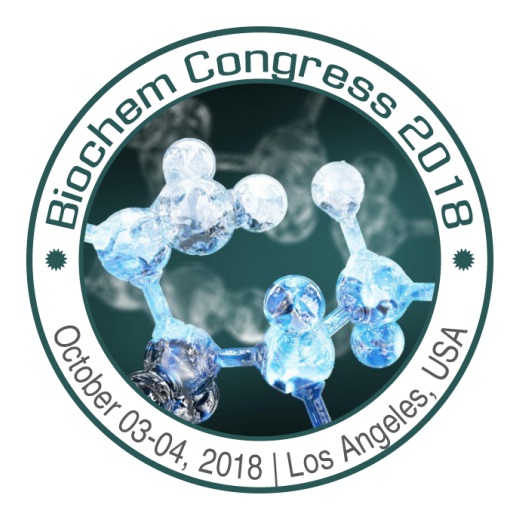Environmental Biochemistry
Applying principles of Biochemistry for the protection of environment is the main concern of environmental biochemistry. The main themes include managing water quality and air resources, protection from radiation, to maintain industrial hygiene etc. Environmental biochemists employ living organism and their capabilities for such purposes. The environmental biochemistry is covered in studying microbial metabolism of pollutants with emphasis on elucidation of metabolites and critical metabolic reactions.
- Lipids
- Proteins
- Carbohydrates
- Nucleic acids
- Environmental indicators
- New approaches in Freshwater environmental quality parameters
- Novel methods in environmental monitoring
- Green chemistry
Related Conference of Environmental Biochemistry
Environmental Biochemistry Conference Speakers
Recommended Sessions
- Clinical Pathology
- Animal and Plant Biochemistry
- Antibody Engineering & Therapeutics
- Biochemistry in Cancer research
- Biomathematics and Biostatistics
- Biophysical techniques
- Biophysics
- Cellular and Molecular Biology
- Clinical & Forensic Biochemistry
- Computational Chemistry and Chemical Biology
- Environmental Biochemistry
- Enzymology and Biochemistry
- Epidemiology
- Food and Nutritional Biochemistry
- Gene Expression and Genetic Engineering
- Improving Rare Disease Diagnosis with Metabolomics
- Industrial & Structural Biochemistry
- Metabolic Biochemistry
- Metabolomic Technology and Bioinformatics
- Metabolomics in Ophthalmology
- Obesity and Metabolic Disorder
- Pharmaceutical Biochemistry
- Protein Engineering
Related Journals
Are you interested in
- 3D Structure Determination - Structural Biology-2026 (France)
- Advanced Drug Delivery Systems for Metabolic Therapy - DRUG CHEMISTRY CONF 2026 (France)
- Advanced Techniques in Structural Biology - Structural Biology-2026 (France)
- AI & Computational Structural Biology - Structural Biology-2026 (France)
- Biochemistry and Biophysics - Structural Biology-2026 (France)
- Biomarker-Guided Drug Development - DRUG CHEMISTRY CONF 2026 (France)
- Chemical Biology Tools in Metabolic Research - DRUG CHEMISTRY CONF 2026 (France)
- Computational Approach in Structural Biology - Structural Biology-2026 (France)
- Computational Drug Design and Molecular Modeling - DRUG CHEMISTRY CONF 2026 (France)
- Drug Designing and Biomarkers - Structural Biology-2026 (France)
- Drug Resistance and Therapeutic Durability - DRUG CHEMISTRY CONF 2026 (France)
- Enzyme Modulation Approaches in Antidiabetic Drug Design - DRUG CHEMISTRY CONF 2026 (France)
- Epigenetic Regulation and Small-Molecule Therapeutics - DRUG CHEMISTRY CONF 2026 (France)
- Future Directions in Drug Chemistry for Diabetes Management - DRUG CHEMISTRY CONF 2026 (France)
- Hybrid Approaches for Structure Prediction - Structural Biology-2026 (France)
- Lipid Chemistry and Metabolic Regulation - DRUG CHEMISTRY CONF 2026 (France)
- Medicinal Chemistry Strategies for Metabolic Disorders - DRUG CHEMISTRY CONF 2026 (France)
- Membrane Proteins and Receptors - Structural Biology-2026 (France)
- Molecular Modelling and Dynamics - Structural Biology-2026 (France)
- Natural Product Chemistry in Diabetes Drug Discovery - DRUG CHEMISTRY CONF 2026 (France)
- Oxidative Stress Modulation through Drug Chemistry - DRUG CHEMISTRY CONF 2026 (France)
- Peptide and Protein-Based Drug Chemistry - DRUG CHEMISTRY CONF 2026 (France)
- Pharmacokinetics and Drug Metabolism Studies - DRUG CHEMISTRY CONF 2026 (France)
- Prodrug Design and Chemical Activation Strategies - DRUG CHEMISTRY CONF 2026 (France)
- Proteomics and Genomics - Structural Biology-2026 (France)
- Regulatory Chemistry and Drug Safety Assessment - DRUG CHEMISTRY CONF 2026 (France)
- Structural Bioinformatics and Computational Biology - Structural Biology-2026 (France)
- Structural Biology in Cancer Research - Structural Biology-2026 (France)
- Structural Virology - Structural Biology-2026 (France)
- Structural Virology and Infectious Diseases - Structural Biology-2026 (France)
- Structure-Based Drug Discovery - Structural Biology-2026 (France)
- Structure-Based Solutions to Global Health Challenges - Structural Biology-2026 (France)
- Structure-Function Relationships - Structural Biology-2026 (France)
- Structure–Activity Relationship Studies in Drug Chemistry - DRUG CHEMISTRY CONF 2026 (France)
- Synthetic Chemistry Innovations in Drug Development - DRUG CHEMISTRY CONF 2026 (France)
- Targeting Pancreatic Function through Drug Chemistry - DRUG CHEMISTRY CONF 2026 (France)
- The Structural Basis of Disease - Structural Biology-2026 (France)
- Translational Drug Chemistry from Bench to Clinic - DRUG CHEMISTRY CONF 2026 (France)

